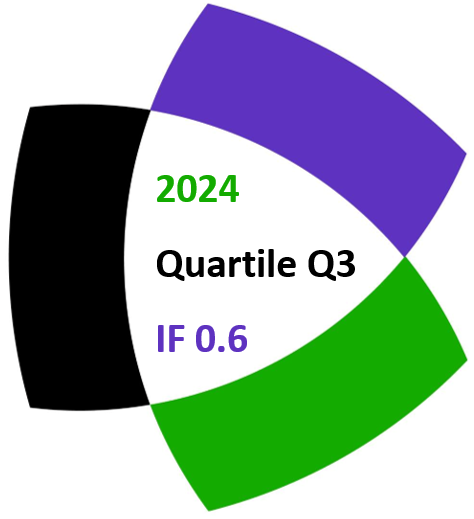Thor Martinsen
Notes on Number Theory and Discrete Mathematics
Print ISSN 1310–5132, Online ISSN 2367–8275
Volume 31, 2025, Number 2, Pages 370–389
DOI: 10.7546/nntdm.2025.31.2.370-389
Full paper (PDF, 283 Kb)
Details
Authors and affiliations
Thor Martinsen ![]()
![]()
Department of Applied Mathematics, Naval Postgraduate School
1 University Circle, Monterey, California, 93943, USA
Abstract
Using biology as inspiration, this paper explores a generalization of the Fibonacci sequence that involves gender biased sexual reproduction. The female, male, and total population numbers along with their associated recurrence relations are considered. We demonstrate that the generalized Fibonacci numbers being investigated are generalized third order Pell–Lucas numbers. Sequence properties, generating functions, and closed-form solutions for these new generalized Fibonacci numbers, as well as several identities involving Jacobsthal, Leonardo, and generalized Leonardo numbers are presented. The generalized Fibonacci number framework developed gives rise to many previously uncataloged sequences, and develops new connections between known sequences.
Keywords
- Generalized Fibonacci numbers
- Generalized third order Pell–Lucas numbers
- Jacobsthal numbers
- Leonardo numbers
- Fisher’s principle
- Extraordinary sex ratios
2020 Mathematics Subject Classification
- 11B37
- 11B39
- 92D25
References
- Catarino, P. (2013). A note involving two-by-two matrices of the k-Pell and k-Pell–Lucas sequences. International Mathematical Forum, 8(32), 1561–1568.
- Catarino, P., & Borges, A. (2019). On Leonardo numbers. Acta Mathematica Universitatis Comenianae, 89(1), 75–86.
- Croot, E. (2008). A combinatorial method for developing Lucas sequence identities. In: De Koninck, J.-M., Granville, A., & Luca, F. (Eds.). Anatomy of the Integers. CRM Proceedings and Lecture Notes, Vol. 46, 175–179.
- Darlington, O. (1947). Gerbert the Teacher. American Historical Review, 52(3), 456–476.
- Dickson, L. E. (2005). History of the Theory of Numbers, Vol. I: Divisibility and Primality. Dover, New York, pp. 393–411.
- Edwards, A. W. F. (1998). Natural selection and the sex ratio: Fisher’s sources. American Naturalist, 151(6), 564–569.
- Ferguson M. W. J., & Joanen, T. (1982). Temperature of egg incubation determines sex in Alligator mississippiensis. Nature, 296, 850–853.
- Fisher, R. A. (1930). The Genetical Theory of Natural Selection. Clarendon Press. Oxford.
- Freudenhammer, T. (2021). Gerbert of Aurillac and the transmission of Arabic numerals to Europe. Sudhoffs Archiv, 105(1), 3–19.
- Kuhapatanakul, K., & Chobsorn, J. (2022). On the generalized Leonardo numbers. Integers, 22, Article #A48.
- OEIS Foundation Inc. (2024). The On-Line Encyclopedia of Integer Sequences. Available online at: https://oeis.org.
- Sigler, L. E. (2002). Fibonacci’s Liber Abaci: A Translation into Modern English of Leonardo Pisano’s Book of Calculation. Sources and Studies in the History of Mathematics and Physical Sciences. Springer, pp. 404–405.
- Soykan, Y. (2019). On generalized third-order Pell numbers. Asian Journal of Advanced Research and Reports, 6(1), 1–18.
- Spickerman, W. R. (1982). Binet’s Formula for the Tribonacci sequence. The Fibonacci Quarterly, 20(2), 118–120.
- Trojnar-Spelina, L., & Włoch, I. (2019). On generalized Pell and Pell–Lucas numbers. Iranian Journal of Science and Technology, Transactions A: Science, 43, 2871–2877.
Manuscript history
- Received: 30 November 2024
- Revised: 4 June 2025
- Accepted: 9 June 2025
- Online First: 14 June 2025
Copyright information
![]() Ⓒ 2025 by the Authors.
Ⓒ 2025 by the Authors.
This is an Open Access paper distributed under the terms and conditions of the Creative Commons Attribution 4.0 International License (CC BY 4.0).
Related papers
Cite this paper
Martinsen, T. (2025). Non-Fisherian generalized Fibonacci numbers. Notes on Number Theory and Discrete Mathematics, 31(2), 370-389, DOI: 10.7546/nntdm.2025.31.2.370-389.


